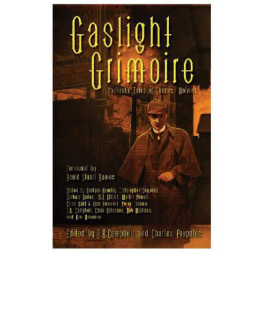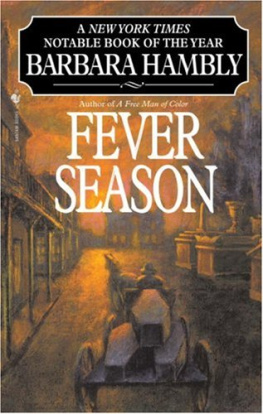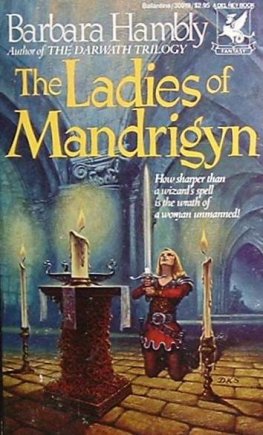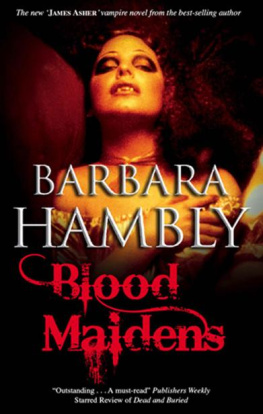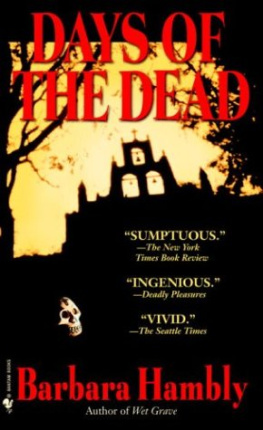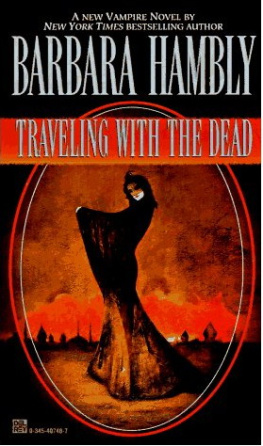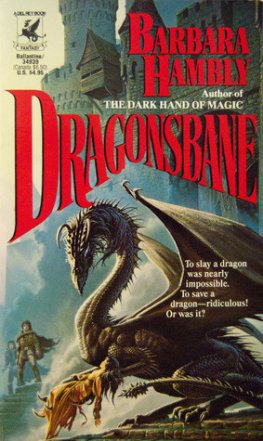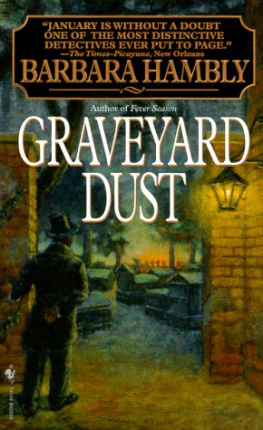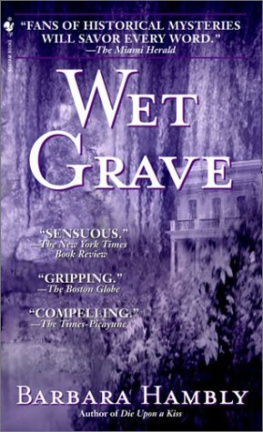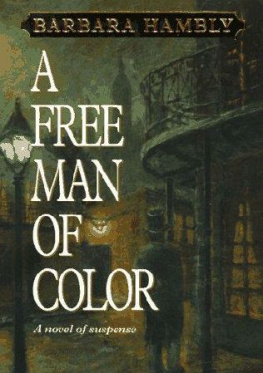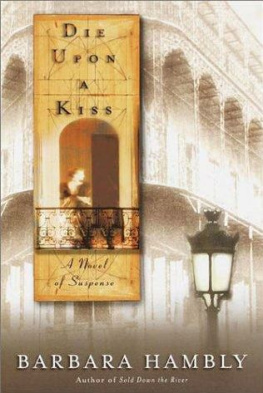Barbara Hambly - 01 Those Who Hunt The Night
Here you can read online Barbara Hambly - 01 Those Who Hunt The Night full text of the book (entire story) in english for free. Download pdf and epub, get meaning, cover and reviews about this ebook. genre: Detective and thriller. Description of the work, (preface) as well as reviews are available. Best literature library LitArk.com created for fans of good reading and offers a wide selection of genres:
Romance novel
Science fiction
Adventure
Detective
Science
History
Home and family
Prose
Art
Politics
Computer
Non-fiction
Religion
Business
Children
Humor
Choose a favorite category and find really read worthwhile books. Enjoy immersion in the world of imagination, feel the emotions of the characters or learn something new for yourself, make an fascinating discovery.

- Book:01 Those Who Hunt The Night
- Author:
- Genre:
- Rating:5 / 5
- Favourites:Add to favourites
- Your mark:
- 100
- 1
- 2
- 3
- 4
- 5
01 Those Who Hunt The Night: summary, description and annotation
We offer to read an annotation, description, summary or preface (depends on what the author of the book "01 Those Who Hunt The Night" wrote himself). If you haven't found the necessary information about the book — write in the comments, we will try to find it.
01 Those Who Hunt The Night — read online for free the complete book (whole text) full work
Below is the text of the book, divided by pages. System saving the place of the last page read, allows you to conveniently read the book "01 Those Who Hunt The Night" online for free, without having to search again every time where you left off. Put a bookmark, and you can go to the page where you finished reading at any time.
Font size:
Interval:
Bookmark:
THOSE WHO HUNT THE NIGHT
One
" Lydia?"
But even before the shadows of the stairwell swallowed the last echoes of his wife's name, James Asher knew something was desperately wrong.
The house was silent, but it was not empty.
He stopped dead in the darkened front hall, listening. No sound came down the shadowy curve of the stairs from above. No plump Ellen hurried through the baize-covered door at the back of the hall to take her master's Oxford uniform of dark academic robe and mortarboard, and, by the seeping chill of the autumn night that permeated the place, he could tell that no fires burned anywhere. He was usually not conscious of the muted clatter of Mrs. Grimes in the kitchen, but its absence was as loud to his ears as the clanging of a bell.
Six years ago, Asher's response would have been absolutely unhesitating-two steps back and out the door, with a silent, deadly readiness that few of the other dons at New College would have associated with their unassuming colleague. But Asher had for years been a secret player in what was euphemistically termed the Great Game, innocuously collecting philological notes in British-occupied Pretoria or among the Boers on the veldt, in the Kaiser's court in Berlin or the snowbound streets of St. Petersburg. And though he'd turned his back on that Game, he knew from experience that it would never completely turn its back on him.
Still, for a moment, he hesitated. For beyond a doubt, Lydia was somewhere in that house.
Then with barely a whisper of his billowing robe, Asher glided back over the threshold and into the raw fog that shrouded even the front step. There was danger in the house, though he did not consciously feel fear-only an ice-burn of anger that, whatever was going on, Lydia and the servants had been dragged into it If they've hurt her...
He didn't even know who they were, but a seventeen-year term of secret servitude to Queen-now King-and Country had left him with an appalling plethora of possibilities.
Noiseless as the Isis mists that cloaked the town, he faded back across the cobbles of Holywell Street to the shadowy brown bulk of the College wall and waited, listening. They-whoever "they" were in the house-would have heard him. They would be waiting, too,
Lydia had once asked him-for she'd guessed, back in the days when she'd been a sixteen-year-old schoolgirl playing croquet with her uncle's junior scholastic colleague on her father's vast lawns-how he kept from being dropped upon in foreign parts: "I mean, when the balloon goes up and they find the Secret Plans are gone or whatever, there you are."
He'd laughed and said, "Well, for one thing, no plans are ever gone- merely accurately copied. And as for the rest, my best defense is always simply being the sort of person who wouldn't do that sort of thing."
"You do that here." Those enormous, pansy-brown eyes had studied him from behind her steel-rimmed spectacles. Her thin, almost aggressive bookishness was at that time just beginning to melt into fragile sensuality. With the young men who were even then beginning to take an interest in her, she didn't wear the spectacles-she was an expert at blind croquet and guessing what was on menus. But with him, it seemed, it was different. In her sensible cotton shirtwaist and blue-and-red school tie, the changeable wind tangling her long red hair, she'd looked like a leggy marsh-fey unsuccessfully trying to pass itself off as an English schoolgirl. "Is it difficult to go from being one to being the other?"
He'd thought about it for a moment, then shook his head. "It's a bit like wearing your Sunday best," he'd said, knowing even then that she'd understand what he meant. And she'd laughed, the sound bright with delight as the April sunlight. He'd kept that laugh-as he'd kept the damp lift of morning fog from the Cherwell meadows or the other-world sweetness of May morning voices drifting down from Magdalen Tower like the far-off singing of angels-in the corner of his heart where he stored precious things as if they were a boy's shoe-box hoard, to be taken out and looked at in China or the veldt when things were bad. It had been some years before he'd realized that her laugh and the still sunlight shining like carnelian on her hair were precious to him, not as symbols of the peaceful life of study and teaching, where one played croquet with one's Dean's innocent niece, but because he was desperately in love with this girl. The knowledge had nearly broken his heart.
Now the years of scholarship, of rest, and of happiness fell off him like a shed University gown, and he moved down the narrow street, circling the row of its flat-fronted brick houses toward the labyrinthine tangle of the back lanes.
If anything had happened to her...
From the lane behind the houses he could see the gas burning in the window of his study, though between the mists and the curtain lace he could distinguish nothing within. A carriage passed along Holywell Street behind him, the strike of hooves and jingle of harness brasses loud in that narrow corridor of cobbles and brick. From the weeping grayness of the garden, Asher could see the whole broad kitchen, lit like a stage set. Only the jet over the stove was burning-even after dusk was well settled, the wide windows let in a good deal of light. That put it no later than seven...
Put what? In spite of his chill and businesslike concentration, Asher grinned a little at the mental image of himself storming his own home, like Roberts relieving Mafeking, to find a note saying, "Father ill, gone to visit him, have given servants night off-Lydia."
Only, of course, his wife-and it still startled him to think that after everything, he had in fact succeeded in winning Lydia as his wife-had as great an abhorrence as he did of confusion. She would never have let Mrs. Grimes and the two maids, not to speak of Mick in the stables, leave for the night without making some provision for his supper. Nor would she have done that or anything else without dispatching a note to his study at the College, informing him of changed plans.
But Asher needed none of this train of logic, which flickered through his mind in fragments of a second,
to know all was not well. The years had taught him the smell of peril, and the house stank of it
Keeping to the tangle of vine that overgrew the garden wall, con-scious of those darkened windows overlooking him from above, he edged toward the kitchen door.
Most of the young men whom Asher tutored in philology, etymology, and comparative folklore at New College-which had not, in fact, been new since the latter half of the fourteenth century-regarded their men-tor with the affectionate respect they would have accorded a slightly eccentric uncle. Asher played to this image sheerly from force of habit -it had stood him in good stead abroad. He was a reasonably unobtru-sive man, taller than he seemed at first glance and, as Lydia generally expressed it, brown: brown hair, brown eyes, brown mustache, brown clothes, and brown mien. Without his University gown, he looked, in fact, like a clerk, except for the sharpness of his eyes and the silence with which he moved. It would have been coincidence, the undergradu-ates would have said, that he found the deepest shadow in the dark and dew-soaked garden in which to stow his gown and mortarboard cap, the antique uniform of Oxford scholarship which covered his anonymous tweeds. Certainly they would not have said that he was the sort of man who could jemmy open a window with a knife, nor that he was the sort of man who would carry such a weapon concealed in his boot.
The kitchen was utterly deserted, chilly, and smelling of the old-fashioned stone floor and of ashes long grown cold. No steam floated above the hot-water reservoir of the stove-a new American thing of black rococo iron which had cost nearly twenty-five dollars from a catalogue. The bland brightness of the gaslight, winking on the stove's nickel-plated knobs, and the silver of toast racks, made the stillness in the kitchen seem all the more ominous, like a smiling maniac with an ax behind his back.
Font size:
Interval:
Bookmark:
Similar books «01 Those Who Hunt The Night»
Look at similar books to 01 Those Who Hunt The Night. We have selected literature similar in name and meaning in the hope of providing readers with more options to find new, interesting, not yet read works.
Discussion, reviews of the book 01 Those Who Hunt The Night and just readers' own opinions. Leave your comments, write what you think about the work, its meaning or the main characters. Specify what exactly you liked and what you didn't like, and why you think so.

